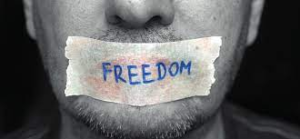
Effects of Censorship on Human Rights: The Complexities of Freedom of Expression and Speech
Introduction:
Freedom of expression and speech is one of the fundamental human rights that is enshrined in various international human rights documents and constitutions across the globe.
However, this right is not absolute, and certain restrictions are imposed on it for various reasons, including protecting national security, public order, and the rights of others.
Censorship is one such mechanism used by governments and other authorities to control the flow of information and ideas, thereby impacting the exercise of the right to freedom of expression and speech. In this article, we will explore the effects of censorship on human rights and the complexities of freedom of expression and speech.
The Concept of Censorship:
Censorship can be defined as the suppression or restriction of information or ideas that are considered undesirable or harmful by the authorities. The reasons for censorship can vary depending on the context and the nature of the information or ideas.
Censorship can be carried out by various actors, including governments, media outlets, social media platforms, and religious or cultural groups.
Effects of Censorship on Human Rights:
Censorship can have a profound impact on the exercise of human rights, particularly the right to freedom of expression and speech. Censorship can limit access to information, stifle dissenting voices, and curtail the ability of individuals to express themselves freely. Censorship can also lead to self-censorship, where individuals may refrain from expressing their views or opinions out of fear of retribution or persecution.
Censorship can also have broader implications for other human rights, including the right to education, freedom of thought, conscience, and religion, and the right to participate in public affairs. By restricting access to information and ideas, censorship can limit the ability of individuals to make informed decisions, participate in public debate, and hold governments accountable.
Impact of Censorship on Special Groups: Journalists, Artists, and Activists
Censorship can have a significant impact on specific groups, such as journalists, artists, and activists, who are often targeted for their views or work that challenges the status quo or those in power. Censorship can take various forms, such as government regulation, self-censorship, or media ownership control.
Journalists are often the targets of censorship, as they play a critical role in holding governments and other powerful entities accountable. Governments may restrict journalists’ access to information, censor news reports, or prosecute journalists for their work. Such censorship can undermine the freedom of the press and limit people’s access to information, which is essential for a functioning democracy.
Artists, including writers, musicians, and filmmakers, can also be targeted for their work. Governments may censor artistic expression that they consider politically or socially controversial, which can restrict the artistic freedom of expression. Censorship of art can also contribute to the marginalization of minority voices and perpetuate inequality and discrimination.
Activists and human rights defenders are often subject to censorship, as they challenge the status quo and advocate for change. Governments may censor or restrict their activities, including peaceful protests or public speeches. This censorship can limit people’s ability to express their grievances and participate in public life, essential for democratic participation.
Censorship can be used to perpetuate inequality and discrimination by silencing dissenting voices and reinforcing the dominant narrative. Governments may censor views and expressions that challenge the existing power structures, which can prevent people from engaging in critical thinking and questioning the status quo. This censorship can limit the diversity of perspectives and ideas and reinforce existing power imbalances.
Censorship can have a profound impact on specific groups, such as journalists, artists, and activists. It can be used to silence dissenting voices and perpetuate inequality and discrimination. It is essential to protect freedom of expression and the press to ensure that all voices are heard, and diverse perspectives and ideas are encouraged.
The Complexities of Freedom of Expression and Speech:

While freedom of expression and speech is a fundamental human right, it is not an absolute right. Restrictions can be imposed on this right for various reasons, including protecting national security, public order, and the rights of others. The challenge lies in striking a balance between protecting these interests and ensuring that individuals can exercise their right to freedom of expression and speech.
The limitations on the right to freedom of expression and speech must be based on clear and specific criteria and proportionate to the legitimate aim being pursued. Restrictions must also be necessary and must be applied in a manner that is consistent with other human rights and the rule of law.
Conclusion:
Censorship is a complex issue that has significant implications for human rights, particularly the right to freedom of expression and speech. While restrictions on this right may be necessary for certain circumstances, they must be based on clear and specific criteria and proportionate to the legitimate aim being pursued.
Governments and other authorities must also ensure that restrictions are applied in a manner that is consistent with other human rights and the rule of law. It is only by striking a delicate balance between protecting legitimate interests and ensuring that individuals can exercise their rights that we can safeguard human rights and promote a free and open society.







